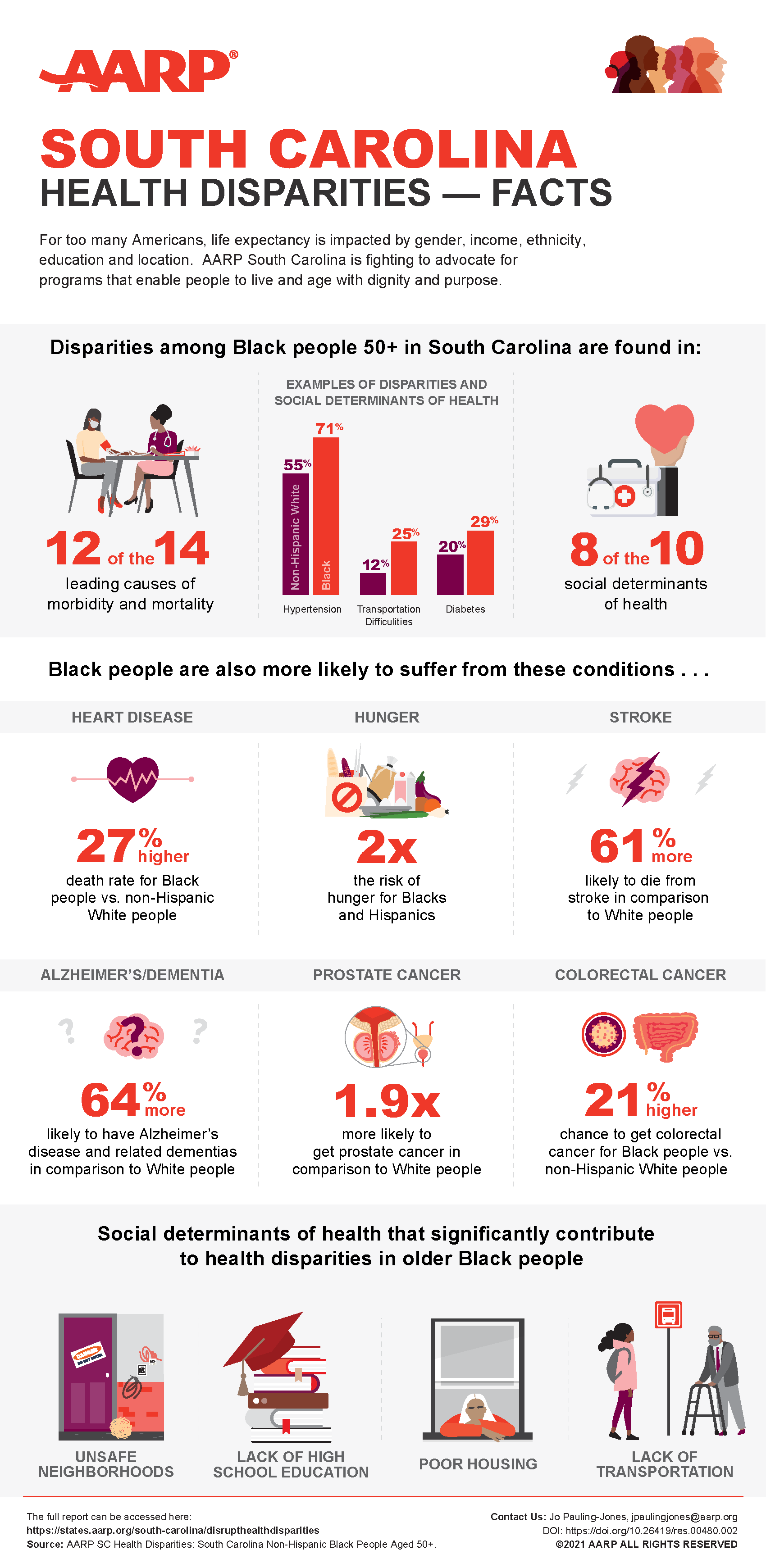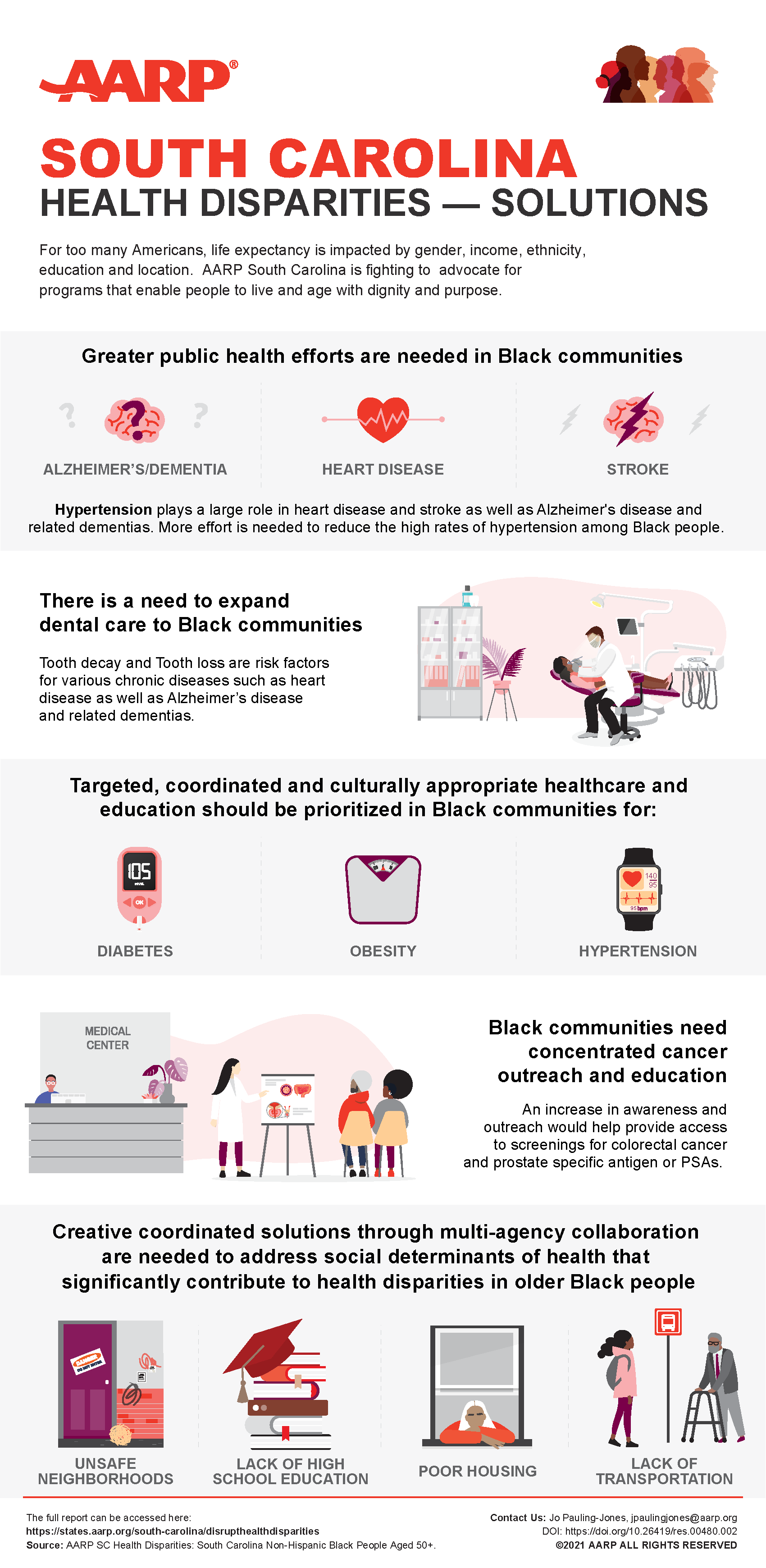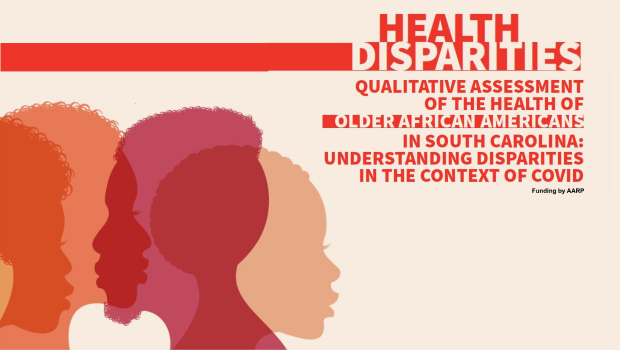AARP Hearing Center
In his 1964 commencement speech at Oberlin College, the Reverend Doctor Martin Luther King, Jr. reminded graduates of the lesson from Washington Irving's short story Rip Van Winkle. Rip slept through the American Revolution, the most important social, cultural, moral, and political challenge of his time. In doing so, he failed to take a stand and do the right thing. Dr. King implored the students to stay awake to the challenges of their time and to take action to meet them, famously saying, "The time is always right to do right."
Years later, Dr. King would go on to describe what he thought was the biggest challenge facing the civil rights movement, "Of all the forms of inequality, injustice in health is the most shocking and the most inhuman because it often results in physical death.” That was more than 50 years ago.
Major differences in morbidities and mortalities still exist between the African American Blacks and Whites right here in South Carolina. African Americans represent more than a quarter of South Carolina's residents and are experiencing significantly poorer health outcomes than the majority.
This is not a political or cultural statement, but an undeniable truth and medical fact. This is not a right or left issue, but rather an issue of right and wrong. This is not an issue victim and perpetrator issue This is also not a "Black community" issue, but an issue that affects the entire community, "for no man is an island."
AARP believes strongly that we have a responsibility to disrupt disparities, especially health disparities, wherever we find them as part of our work to help the 50+ live their best lives. AARP South Carolina believes Dr. King was right, the time is always right to do what's right. We believe seriously addressing health disparities is the right thing to do and we believe the time is now.
AARP South Carolina has committed itself to a long-term campaign to address, inform, educate and ultimately disrupt health disparities in South Carolina.
As such we've taken the first step. We did our homework. Thus far we've commissioned two studies.
Our first research report, Health Disparities: South Carolina Non-Hispanic Blacks Aged 50+, laid out the quantitative facts of health disparities for older African Americans in South Carolina while also recommending actions that might lead to positive change.
Report author Cheryl Dye, Ph.D., founding director of the Clemson University Institute for Engaged Aging and professor emeritus in Clemson’s Department of Public Health Sciences summed up the report saying, “We examined 14 leading causes of morbidity and mortality and eight social determinants of health,” reported Dr. Dye. “Of those 14 causes of morbidity and mortality, African Americans aged 50 and older in South Carolina suffered disparities in 12. And then as we examined the social determinants of health—the eight we looked at—older South Carolinian African Americans suffered disparities in seven.”
Some key findings of the report are listed here:

Some of the recommendations are listed here:

By the time we were commissioning the second report, there was no doubt that Black South Carolinians were experiencing worse health outcomes due to COVID than other groups in the state.
The tragic circumstances allowed researchers to capture the unique perspective of older African American South Carolinians experiencing the reality of differential health outcomes during the COVID-19 global pandemic.
Researchers conducted 47 interviews of African Americans ages 50 and older who live in 17 economically disadvantaged counties in South Carolina. The result was Health Disparities Qualitative Assesment of the Health of Older African Americans in South Carolina: Understanding Disparities in the Context of COVID.

Essentially this study gives a voice to those experiencing health disparities in their families and communities capturing a unique first-hand perspective into problems and contributing factors to disparities as well as potential solutions.
Themes arising from the report center around
































































